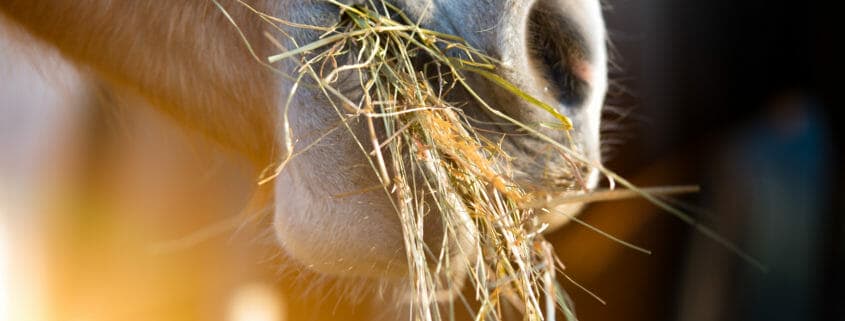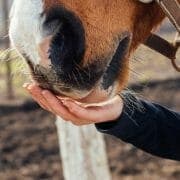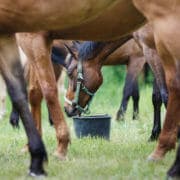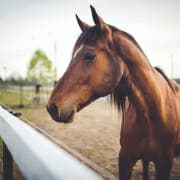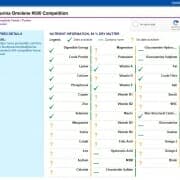Biotin: Should You Supplement?
Biotin is a vitamin essential for many functions in a horse’s body, including: fatty acid synthesis, protein and energy metabolism and cell proliferation.
In equine nutrition biotin is best known and most commonly used to positively influence hoof quality. There are many biotin supplements available. Some contain only biotin, others also have nutrients like methionine and organic zinc. These supplements are marketed as hoof supplements and the one thing they usually have in common is they are expensive. The question is, does your horse actually need supplemental biotin?
Biotin is naturally available to your horse
Your horse has access to two sources of natural biotin. Biotin is contained in most feeds and forages, particularly green fresh forages. In addition, the bacteria in a healthy horse’s gut produce biotin which is made available to the horse.
Therefore a horse on a forage based diet with a healthy gut should not need to be supplemented with biotin. BUT there are plenty of horses on this type of diet with poor quality hooves. Often horse owners turn straight to biotin in this situation to improve hoof quality. However, it is unlikely a biotin deficiency is causing the problem, which means biotin certainly isn’t going to fix it.
An unbalanced diet causes poor quality hooves
While supplementing with biotin may seem a good solution to improve hoof quality, it won’t help if the rest of the diet is unbalanced. Minerals like copper and zinc and good quality protein all need to be in the horse’s diet in balanced quantities for the horse to grow quality hoof.
The best way to achieve good quality hooves
Feed a completely balanced diet! If your horse has poor quality hooves it is likely its diet is missing something and it probably isn’t biotin. Steps to achieving good quality hooves are:
- Balance your horse’s diet using FeedXL and feed that balanced diet. It will be 3 to 6 months before you see a positive effect.
- Base your horse’s diet as much as possible on good quality forage.
- Avoid feeding uncooked grains (with the exception of oats) as these can upset the bacteria balance in the hindgut and reduce their natural production of biotin.
When should you use biotin?
There are some situations that may warrant biotin supplementation. These are:
- If your horse has been maintained on a high grain diet for an extended period of time.
- If your horse has been on a long term dose of oral antibiotic.
- If your horse is old and has lost some function in its hindgut.
- If your horse is recovering from a condition like laminitis or an injury that has affected its hooves
- If your horse has been on a long-term balanced diet and you are still not happy with the condition of his hooves, biotin may help!
If any of these situations apply to your horse and its hoof quality is poor despite a balanced diet it is possible that it is not receiving enough biotin. FeedXL will work out the best dose for your horse so that supplementing is effective. As a guide, a 500 kg (1100 lb) horse will need 20 mg of biotin per day and you will need to supplement for around 6 months for it to really work.
Join FeedXL today and take control of your horse’s nutrition
Get EVEN MORE practical and personalised feeding guidance when you sign up to FEEDXL.
Do you have a question or comment? Do you need help with feeding?
We would love to welcome you to our FeedXL Horse Nutrition Facebook Group. Ask questions and have them answered by PhD and Masters qualified equine nutritionists and spend time with like-minded horse owners. It’s free!
Click here to join the FeedXL Horse Nutrition Facebook Group

